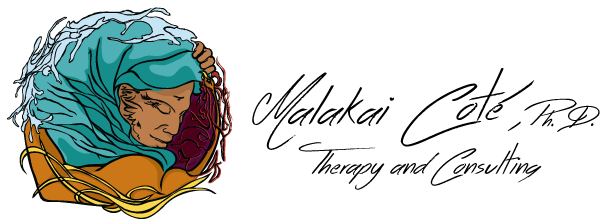When it comes to transgender health, the medical and behavioral health fields do not have the best track record in patient-centered care. Experiences have ranged from receiving flabbergasted looks when disclosing their gender identities to health care professionals to receiving medically unnecessary examinations. Health service providers have also played the role of "gatekeeper" for folks looking to receive medically necessary care. This can mean additional financial expenses (i.e., insurance co-pays or other out of pocket expenses) to be "cleared" for specific gender confirmation surgeries. This could also mean what feels like proving a person is suffering enough to receive appropriate services. This paradigm reinforces the idea that "I have to get over this hurdle to get what I need to live authentically" or "I need to say the right thing to receive the care that I need."
To flip the oppositional paradigm, mental health providers have the responsibility to to continue to grow professionally and redefine the role that we play in providing support and therapeutic healing for gender diverse people. Given that the healing and recovery does not stop after beginning medical transition, many folks have advocated to form collaborative partnerships to ensure a greater likelihood of post-operative wellness. Collaborative partnerships are grounded in respect and validation. These partnerships are also founded upon listening compassionately, not making assumptions about the identities or experiences of people, and not letting bias interfere with providing quality care. These partnerships can also be grounded in transparency about the variety of gender transition processes/options. Providing transparency also includes articulating the specific behavioral health provider role in enabling access to medically necessary care. Additional partnership opportunities may included:
Working collaboratively to develop a therapeutic relationship to explore intersecting identities and to establish plans for next steps on one’s gender journey.
IF A PERSON CHOOSES TO PURSUE MEDICAL INTERVENTION, Working to ensure a greater likelihood of post-operative wellness.
engaging healing in a world that is often intolerant and judgmental of deviations from narrowly prescribed norms.
With regard to medical interventions, the healing and recovery does not stop after the last suture has been sewn or after a hormone regimen has commenced. Physical recovery from surgery can be supported by having a healthy body (e.g., adequate nutrition before and after surgery and consistent exercise before surgery). Remaining smoke-free also encourages faster healing times. Some folks struggle with mental health concerns beyond gender dysphoria, while other people do not. For the folks who have and continue to struggle it can very helpful to have mental health concerns at least stabilized to ensure post-operative success, as post-operative success often goes hand in hand with mental health stability.
Within collaborative partnership, clients and mental health providers work to ensure that folks have the appropriate supports, have realistic expectations about the potential outcomes of surgical procedures and hormone treatments, have adequate financial support, and have access to housing accommodations to ensure the most helpful healing environment. Mental health providers may be able to assist in these further developing these supports.
In my work with trans-identified folks, I seek to work beyond the limiting paradigm of gatekeeper. I am invested in seeing people thrive by exploring the multiple routes toward authenticity, while also acknowledging the complexities and, at times, challenging realities of ecological contexts of risk and resilience. I work within the mental health system and I also work toward a more expansive engagement with gender diverse people. It also remains important to use what we know about science, recovery, and healing to support people throughout medical gender transition and beyond the medical interventions.
